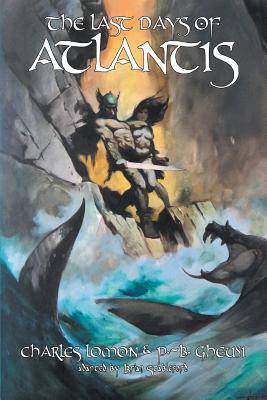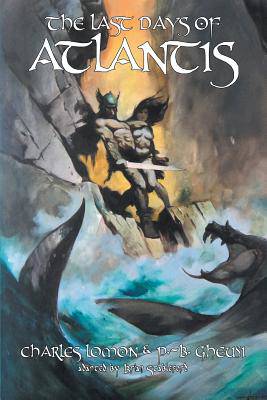
- Afhalen na 1 uur in een winkel met voorraad
- Gratis thuislevering in België vanaf € 30
- Ruim aanbod met 7 miljoen producten
- Afhalen na 1 uur in een winkel met voorraad
- Gratis thuislevering in België vanaf € 30
- Ruim aanbod met 7 miljoen producten
Zoeken
€ 33,95
+ 67 punten
Omschrijving
A flamboyant adventure featuring swords and sorcery, heroic barbarians and evil priests avid for human sacrifices, monstrous Guardians at the Threshold and the Fountain of Youth, The Last Days of Atlantis (1905) is a direct ancestor of such spectacularly successful modern fantasy works as The Lord of the Rings and Game of Thrones. It helps fill in a notable gap between the stylized heroic fantasies of William Morris, James Branch Cabell, Lord Dunsany and E.R. Eddison, and the sword and sorcery tropes of Robert E. Howard, further developed by C. L. Moore, Fritz Leiber, Clark Ashton Smith, Jack Vance and George R.R. Martin. After acquiring a magic sword, Argall, a brave barbarian hero, becomes both pawn and prize in a fierce conflict between Yerra, the wicked Sorceress-Queen of Atlantis, and Soroe, the courageous maiden who has dared to challenge her. Their battle shall lead to the inevitable doom of the fabled island. Charles Lomon (1852-1923) and Pierre-Barthélemy Gheusi (1865-1943) were both successful novelists, playwrights and operatic librettists. Although The Last Days of Atlantis did not attract much attention at the time of its publication, it can be seen, with the aid of hindsight, as significant benchmark in the history of imaginative fiction as the first great epic fantasy novel of the 20th century.
Specificaties
Betrokkenen
- Auteur(s):
- Uitgeverij:
Inhoud
- Aantal bladzijden:
- 368
- Taal:
- Engels
Eigenschappen
- Productcode (EAN):
- 9781612274560
- Verschijningsdatum:
- 31/10/2015
- Uitvoering:
- Paperback
- Formaat:
- Trade paperback (VS)
- Afmetingen:
- 152 mm x 229 mm
- Gewicht:
- 539 g

Alleen bij Standaard Boekhandel
+ 67 punten op je klantenkaart van Standaard Boekhandel
Beoordelingen
We publiceren alleen reviews die voldoen aan de voorwaarden voor reviews. Bekijk onze voorwaarden voor reviews.








